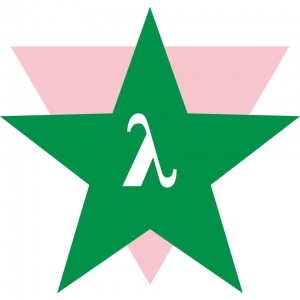Difference between revisions of "Esperanto"
From LGBT Archive
Ross Burgess (Talk | contribs) |
Ross Burgess (Talk | contribs) |
||
| Line 7: | Line 7: | ||
[[J C Wells]] was president of the World Esperanto Association (UEA) from 1989 to 1995 | [[J C Wells]] was president of the World Esperanto Association (UEA) from 1989 to 1995 | ||
| − | "Gay" in Esperanto is "geja"; "homosexual" is " | + | "Gay" in Esperanto is "geja" (the "gej" part is pronounced very much like English "gay"); "homosexual" is "samseksema", and "LGBT" is "GLAT" ("gejoj, lesbaninoj, ambaŭseksemuloj kaj transgenruloj", literally "gay, lesbian, bisexual and transgender people"). |
==External links== | ==External links== | ||
Latest revision as of 09:08, 27 January 2016
Esperanto is an international language created by Dr L L Zamenhof, who published the first book about it in 1887. It is thought that about two million people worldwide can speak the language.LGBT aspects
There is an international gay esperantist organisation called Ligo de Samseksamaj Geesperantistoj (LSG) – League of Homosexual Esperantists (of both sexes). It was founded in 1977 by Peter Danning.
J C Wells was president of the World Esperanto Association (UEA) from 1989 to 1995
"Gay" in Esperanto is "geja" (the "gej" part is pronounced very much like English "gay"); "homosexual" is "samseksema", and "LGBT" is "GLAT" ("gejoj, lesbaninoj, ambaŭseksemuloj kaj transgenruloj", literally "gay, lesbian, bisexual and transgender people").
External links
- http://www.lsg-esperanto.org/ LSG website [dead link].
- https://www.facebook.com/LSG.eo/ LSG Facebook page.
